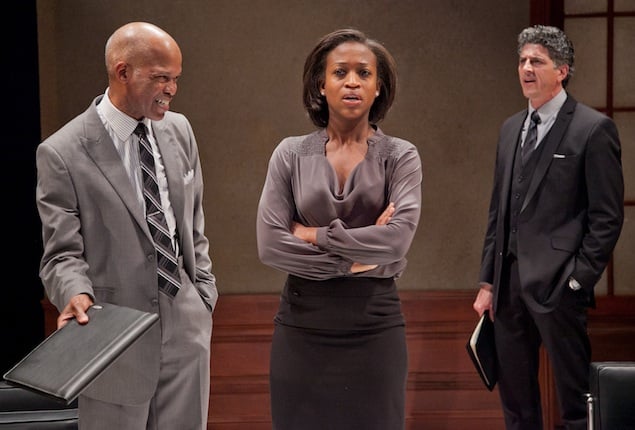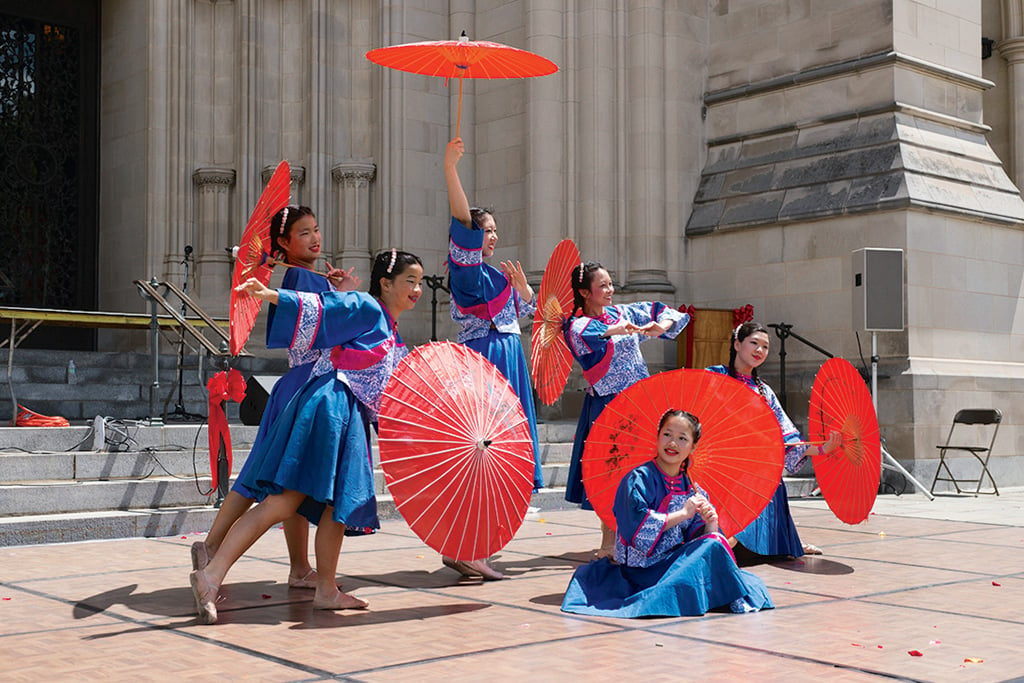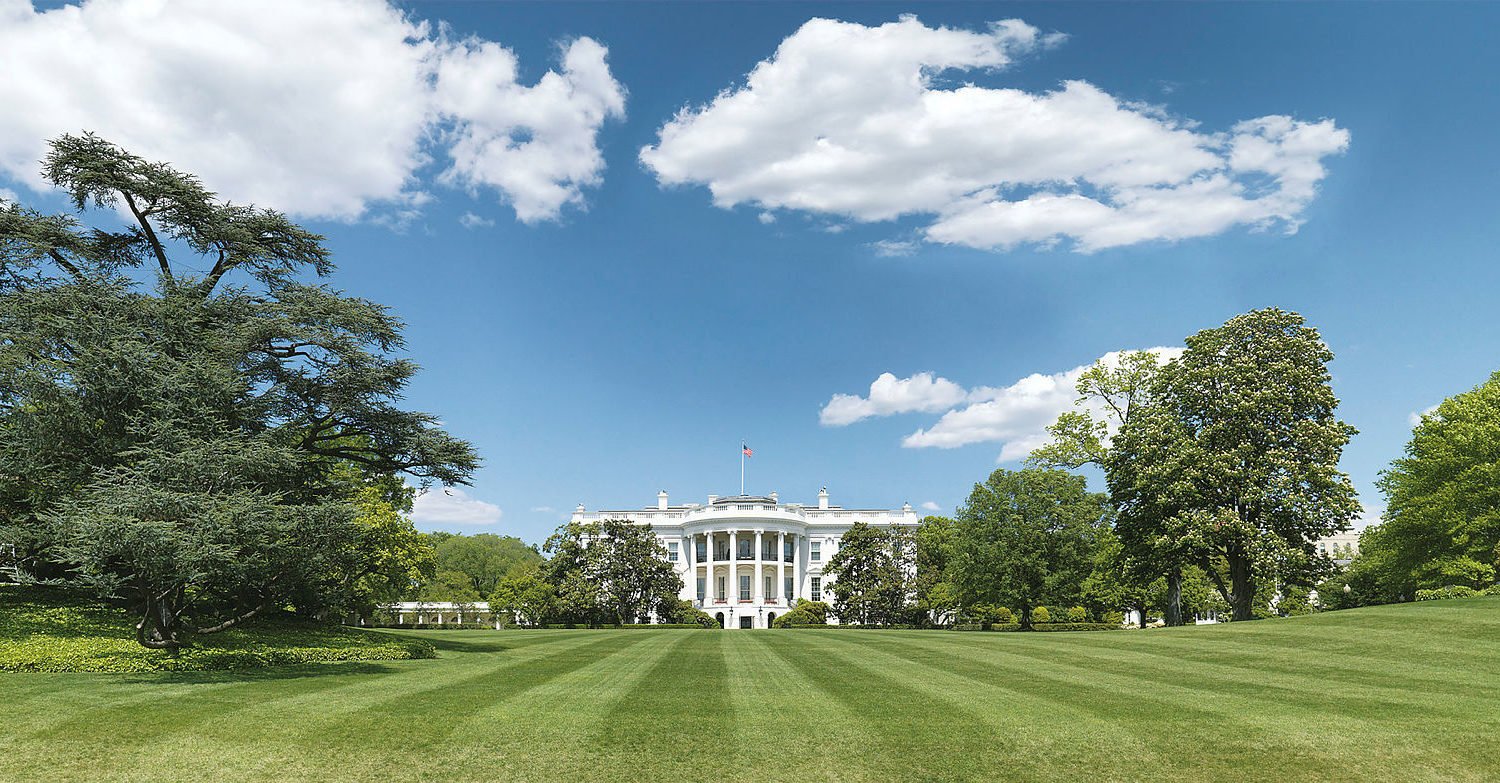
David Mamet’s
Race, currently playing at Theater J, takes the premise of a courtroom drama and tweaks
it slightly. Here, the tension and trial aren’t played out in front of a jury. The
nuances of a racially charged, sensational crime are weighed by the accused’s would-be
lawyers, as they decide whether it’s worth tackling a case that doesn’t seem winnable.
That case is eerily similar to the Dominique Strauss-Kahn scandal, though a prescient
Mamet wrote his play two years before, in 2009. Charles (Leo Erickson), a wealthy white man of some notoriety, has been accused of raping a black woman.
It’s clear at the outpost that Charles’s guilt or innocence is not the primary dramatic
question of
Race, though the answer to that question becomes more important than it initially seems.
Charles’s original legal team has cast him aside, so he turns to partners Jack (James Whalen) and Henry (Michael Anthony Williams) for guidance, particularly because Henry is black and Charles recognizes the role
racial perceptions will play in the case.
He doesn’t recognize much else, though, and much of the play is spent watching Jack
and Henry irreverently put Charles in his place. The accused, self-righteous with
indignation over what he classifies as a wrongful allegation, is torn from his pedestal
by the pair, who are able to voice exactly what the jury will be thinking about him
in caustic, cutting, signature Mamet style. Slickly dressed in sharp gray suits, every
physical detail in place down to the smart patterned socks, Jack and Henry make a
formidable pair. Some of Jack’s opining is done for the benefit of Susan (Crashonda Edwards), a less experienced black attorney whom he’s mentoring at the firm, and who’s having
trouble pushing her personal instincts aside to focus on the needs of the potential
client.
Race first provokes by voicing uncomfortable ideas—about knee-jerk reactions people of
different races make about each other, and about the role that class and wealth also
play in individuals’ prejudices—out loud. But the tension eventually shifts away from
big-picture philosophy to the particulars of the case, as more evidence against Charles’s
character comes to light, even as the legal team stumbles on a strategy it can use
to its advantage. Mamet packs multiple plot twists into the play’s final minutes,
making it hard to fully digest and appreciate those final developments (the time progression
of
Race is also slightly confusing, as some scenes feel like they could be either hours or
weeks apart).
Race’s direction, from
John Vreeke, has a few heavy-handed moments (Misha Kachman’s set is dominated by shadows cast on the walls of the legal office, which shift
to video clips of racially charged vignettes, such as blackface performances, during
scene changes). But Mamet’s play is thought-provoking and often bracingly funny, particularly
in the hands of the capable cast. It takes a while for Whalen and Edwards to settle
into the rhythm of Mamet’s dialogue (Williams, for his part, is effortlessly smooth
and charismatic). But the performers are ultimately up to the task of selling
Race as a provocative, talky conversation starter.
Race
runs through March 17 at Theater J. Running time is about 80 minutes, with no intermission.
Tickets ($45 to $60) are available via Theater J’s website.


















